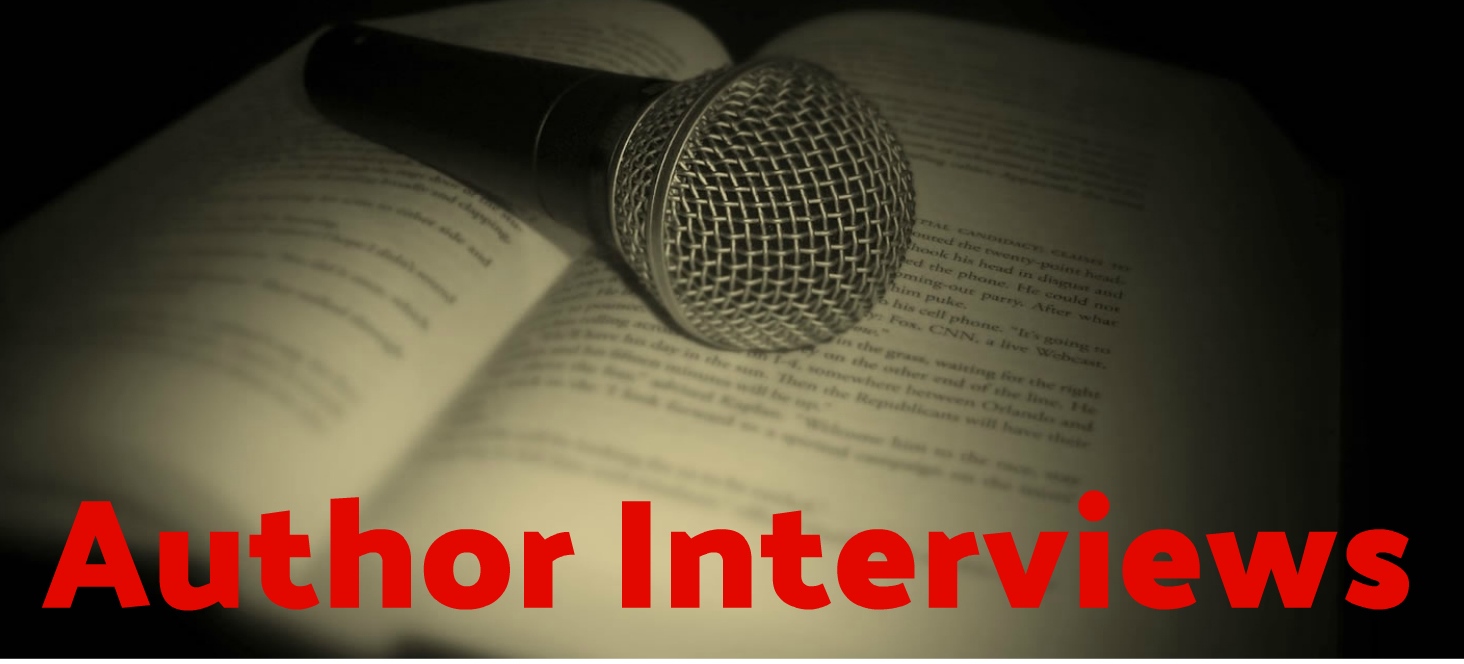
In-Depth Discussions with Today's Darkest Talents
Alexandra Sokoloff On the 'Price' of Success
By, Vince A. Liaguno
Try not to hate Alexandra Sokoloff too much. Yes, she's a talented writer whose debut novel - 2006's The Harrowing - garnered widespread acclaim and enjoyed cross-genre appeal. Yes, she's an equally gifted screenwriter. Yes, she can act, 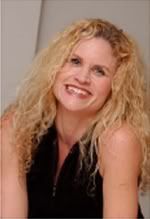 sing, dance, and play the piano. And, yes, she's got some serious blond locks most women (and a few men) would kill for. But at the heart of all that talent and beauty lies a dedicated artist whose passion for the craft of writing is contagious.
sing, dance, and play the piano. And, yes, she's got some serious blond locks most women (and a few men) would kill for. But at the heart of all that talent and beauty lies a dedicated artist whose passion for the craft of writing is contagious.
On the eve of the release of her eagerly-awaited second novel, The Price (St. Martin's Press), DSM caught up with the fiery dark scribe who shared her insights on everything from genre labels to the writers strike and shared her thoughts on what's needed to give fiction the shot of adreneline it needs to attract younger readers.
Dark Scribe Magazine: Tell us something about your new book, The Price.
Alexandra Sokoloff: It’s set in what must be the spookiest hospital ever built – a maze of 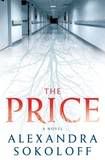 six hospitals interconnected by glass bridges, underground tunnels, indoor and outdoor gardens – truly the Twilight Zone - which a hospital always is anyway, right? The protagonist is a Boston District Attorney who’s the top contender in the governor’s race – but his life is shattered when his five-year old daughter is diagnosed with an inoperable tumor. Now the DA and his beloved wife are living in this hospital, basically waiting for their daughter to die. Then a mysterious and charismatic hospital counselor takes special interest in their plight, and when the daughter miraculously starts to improve, the DA suspects his wife has made a terrible bargain to save their child.
six hospitals interconnected by glass bridges, underground tunnels, indoor and outdoor gardens – truly the Twilight Zone - which a hospital always is anyway, right? The protagonist is a Boston District Attorney who’s the top contender in the governor’s race – but his life is shattered when his five-year old daughter is diagnosed with an inoperable tumor. Now the DA and his beloved wife are living in this hospital, basically waiting for their daughter to die. Then a mysterious and charismatic hospital counselor takes special interest in their plight, and when the daughter miraculously starts to improve, the DA suspects his wife has made a terrible bargain to save their child.
Dark Scribe: How is the new book different from The Harrowing?
Alexandra Sokoloff: The Price is much more adult, and I think much darker – so dark it was kind of excruciating to write. It’s also much more internal than The Harrowing… there’s a level on which none of this is happening at all, except in Will’s mind – a descent into madness under the most extreme grief and stress. It’s both more overtly supernatural and more completely psychological. And it’s also very much a love story – about the unspoken dynamics of a marriage and what we are and aren’t willing to do for those we love.
Dark Scribe: What was the inspiration behind The Price?
Alexandra Sokoloff: It’s a sad story. A friend of mine and his wife had just had their first child, and she was born with a hole in her heart. She lived the whole of her two months of life in the children’s ward of a Boston hospital, and her parents moved into the hospital, to be with her. When she died, her parents were too distraught to come home to all the unused baby furniture and clothes, so a bunch of their friends packed everything up for them, and because I have a huge attic, we put it all upstairs in my house. That night I started having dreams of a beautiful little five-year old girl who was not alive but not dead, either – somewhere in between. And that was the beginning of the book.
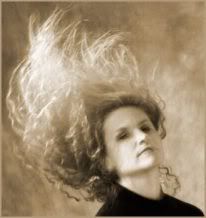 But I’ve always had a fascination with the concept of a deal with the devil – the things we have in the back of our minds that we would do for what we most desire – fame, fortune, love. What would we really do? What is the one thing that we would do that we would never confess to a soul? So that’s what the story is about.
But I’ve always had a fascination with the concept of a deal with the devil – the things we have in the back of our minds that we would do for what we most desire – fame, fortune, love. What would we really do? What is the one thing that we would do that we would never confess to a soul? So that’s what the story is about.
Influences – definitely the late, great Ira Levin: Rosemary’s Baby. The Omen - although I hope I’m a little more subtle!. An author I really admire compared the book to Thomas Tryon’s The Other. And fairy tales, definitely fairy tales...the dark and bloody ones in Lang’s The Blue Fairy Book. I love the way Thomas Harris used fairy tale imagery throughout Silence of the Lambs, one of my favorite books ever.
Dark Scribe: The Price is set in a creepy labyrinthine Boston hospital. What kind of research did you do to capture the setting?
Alexandra Sokoloff: I went and lived at the hospital, of course! In one of those mindblowingly synchronistic writing moments, when I started doing research into the Boston hospital I was going to use, I found out that my cousin was going to be doing his surgical residency there and one of my best friends from high school was already there as a surgical resident. So I had total access to the “backstage” of the hospital. One interesting thing I learned right away is that I wouldn’t have needed that kind of personal in. It is frighteningly easy to walk around a hospital and never have anyone stop you.
The hospital I used really is six hospitals which have grown together in a kind of living tumor of glass bridges, underground walkways, interconnecting elevators. You can literally walk in these hospitals for miles without even getting out, and you have no idea where you are half the time. The first moment I walked into the place I just couldn’t believe that no one had ever set a thriller there.
Dark Scribe: One of the strengths of The Harrowing was its ensemble of well-drawn characters. Is The Price more of an ensemble piece in terms of the characters or does it employ a single-protagonist narrative?
Alexandra Sokoloff: Thanks! That ensemble thing was fun to do in The Harrowing – although in terms of voice it’s still very much from Robin’s point of view. The Price is almost entirely a single-protagonist narrative, but the most interesting thing about it structurally, at least to me, is that under the surface, the protagonist’s wife really drives the action. While Will is agonizing, Hamlet-like, about what he should do, Joanna just goes out and coldly does what she feels needs to be done. Then Will has to uncover what his wife has done. There’s also a very strong triangle structure going on, between Will, Joanna, and the mysterious antagonist, Salk. These brutal oppositions and the underlying eroticism give the story a lot of tension, even though it’s just Will we’re following.
Dark Scribe: The Harrowing received glowing reviews and Bram Stoker and Anthony Award nominations for Best First 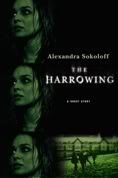 Novel. Did that out-of-the-box success put any pressure on you to deliver a worthy follow-up?
Novel. Did that out-of-the-box success put any pressure on you to deliver a worthy follow-up?
Alexandra Sokoloff: I wasn’t thinking about anything at the time except trying to get the story right – it was a very internal struggle. After I was finished and those nominations were coming in for The Harrowing it suddenly occurred to me that with The Price I had written a book that was so different in terms of potential audience that I might have to start over building a readership. Dark genre fans, of course, will read anything good in the genre, but The Harrowing is very appealing to older teens, and The Price wrestles with extremely adult issues.
Dark Scribe: With your background in screenwriting, any plans on tackling the screenplays for either book?
Alexandra Sokoloff: Absolutely – after the wrtiers’ strike is over and we’ve resolved this negotiation favorably. I’ve already been through a round of development with The Price at Sony – it’s a very cinematic story. And yes, I’ll always want to be the first screenwriter on my own books. I would never again write an original screenplay without writing the book first, though – writing the book is the best way to protect your underlying rights.
Dark Scribe: Between The Harrowing and The Price, which one do you see translating better to the screen? Who could you see playing the main roles in each? Extra points if you say Jamie Lee Curtis!
Alexandra Sokoloff: The Harrowing is a slam dunk as a movie - and I appreciate how many readers have taken the time to write to me to say so - but The Price would have a chance at being a real classic, even though it’s a much more difficult story to pull off. For The Harrowing, I’ve always seen Jena Malone as Robin, but of course Ellen Page would be lovely! Teenagers have very definite ideas about who should play Cain and Patrick: Joshua Jackson, Gregory Smith, Chris Pratt, Charlie Hunnam… I think they’re right. Joseph Gordon Leavitt or Michael Cera as Martin, Emilie de Ravin or Katharine Isabelle as Lisa… there are so many talented actors in this age range right now.
For The Price…Will is hard – we don’t have many American actors who have the masculine power required to pull off a political figure like that. Viggo Mortensen would be ideal. I’ve always liked Milla Jovovich for Joanna, or Keira Knightley, if she were a little older: complex, dark, haunted. It’s a fantastic role. Salk - I would die to see Lawrence Fishburne, Samuel Jackson, or the outrageously talented and charismatic Idris Elba (Stringer Bell from The Wire). The interesting thing about Viggo is that he could play Salk just as well as he could do Will.
Sorry… nothing for Jamie Lee at this time!
Dark Scribe: Our interview is over! (laughs) Always much lively discussion on the topic of genre labels. What are your thoughts on the horror versus thriller label, and what implications do you think either/both have on how books are marketed by publishers and received by readers?
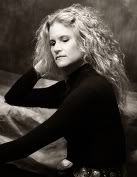 Alexandra Sokoloff: Well, you know, at St. Martin’s we don’t even use the H-word! And I understand why. I’ve been a horror reader since I could read and I’ll always reach for the spooky cover over anything else out there. I think that’s typical of horror fans, so in a way you don’t have to work as hard for the horror audience – it markets itself. And let’s be blunt – the horror genre has been degraded by years of real dreck – those books have turned off a huge percentage of a potential crossover audience, so it’s not at all surprising that publishers prefer to market dark suspense books as thrillers. The Harrowing found a large mystery audience, and also a staggering number of paranormal romance readers. From my limited experience as a new author, it seems the paranormal audience is the one that horror authors should be courting. Anne Rice sure knew that. Bottom line - that readership buys books.
Alexandra Sokoloff: Well, you know, at St. Martin’s we don’t even use the H-word! And I understand why. I’ve been a horror reader since I could read and I’ll always reach for the spooky cover over anything else out there. I think that’s typical of horror fans, so in a way you don’t have to work as hard for the horror audience – it markets itself. And let’s be blunt – the horror genre has been degraded by years of real dreck – those books have turned off a huge percentage of a potential crossover audience, so it’s not at all surprising that publishers prefer to market dark suspense books as thrillers. The Harrowing found a large mystery audience, and also a staggering number of paranormal romance readers. From my limited experience as a new author, it seems the paranormal audience is the one that horror authors should be courting. Anne Rice sure knew that. Bottom line - that readership buys books.
I’ve said this to you before, but I think Dark Scribe has it completely right – dark suspense is what I write, and it’s by its very nature cross-genre: mystery, supernatural, horror, thriller, suspense, paranormal.
Dark Scribe: Having worked inside the movie studio system (with studios such as Sony, Fox, Disney, Miramax) with your screenplay work, what are your thoughts on the current stalemate between Hollywood producers and the writers union? What do you think needs to happen to bring the strike to a close?
Alexandra Sokoloff: Talks have started again this week, so by the time this article goes up it may be much closer to resolved, and I don’t want to comment on the latest, the new DGA deal, before the WGA Negotiating Committee has had a chance to analyze it. But the WGA and SAG, the Actors Guild, are both entirely committed to getting a fair deal on Internet and New Media residuals. That’s the future of the industry and we’re entitled to a percentage of the profit from the stories we create. For those interested, I’ve written extensively about the strike on my blog.
Dark Scribe: With overall readership on the decline and potential younger readers opting for visual, high-tech entertainment, what can/needs to be done to help reading as a pastime make a comeback?
Alexandra Sokoloff: Hmm, huge question. What can we as authors do? I think that cross-media projects can help  encourage reading. Movie adaptations of books often impel younger readers to read the original books. Manga is huge with a young readership, and so it makes sense to adapt books as graphic novels, or market stories with some graphic novel features, like The Darker Mask anthology coming out from Tor that I have a story in. It’s a collection of literary stories on the theme of “Heroes from the Shadows” and is illustrated by graphic artists – very cool!
encourage reading. Movie adaptations of books often impel younger readers to read the original books. Manga is huge with a young readership, and so it makes sense to adapt books as graphic novels, or market stories with some graphic novel features, like The Darker Mask anthology coming out from Tor that I have a story in. It’s a collection of literary stories on the theme of “Heroes from the Shadows” and is illustrated by graphic artists – very cool!
Dark Scribe: You’re contracted for two more supernatural thrillers from St. Martin’s Press. What can your readers expect from you next?
Alexandra Sokoloff: The third book is something I’ve always wanted to do - based on some of the real studies done at the Duke parapsychology department the first dedicated parapsychology lab at a major university in this country. Most people know about Dr. J.B. Rhine’s scientific ESP experiments – not that many people know that the lab also did field studies of poltergeists. Now is that a book, or what?
The fourth I don’t want to talk about yet, but I’m dying to get back to it. Just not enough time in the world to write.
Dark Scribe: You’ve also got quite a musical background and have been spotted tickling the occasional ivory, tearing up the occasional dance floor, and belting out the occasional tune on stage. Why writing and not music as a career path?
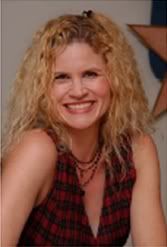 Alexandra Sokoloff: I’m really only a backup singer, and preferred the chorus and featured dancer roles to leads in musicals. Piano – well, you have to make a choice, don’t you? You can’t be a professional pianist and a professional novelist. At least, I couldn’t.
Alexandra Sokoloff: I’m really only a backup singer, and preferred the chorus and featured dancer roles to leads in musicals. Piano – well, you have to make a choice, don’t you? You can’t be a professional pianist and a professional novelist. At least, I couldn’t.
Sometimes I regret not having gone for a life as a musical theater director, but I get a lot of satisfaction from the performing I do, especially with the Killer Thriller Band and Heather Graham’s Vampire Dinner Theater productions. Funny how many dark genre authors there are in those two ensembles!
Dark Scribe: What are three things your readers would be surprised to know about you?
Alexandra Sokoloff: 1. I’m an ordained minister. I started out doing unconventional weddings for unconventional friends and then started getting asked by people I don’t know; 2. I grew up with all kinds of rescued animals because my dad’s a biologist and at one point had 36 pet rats, all named after Dark Shadows characters; 3. I can fly.
For more about Alexandra Sokoloff, visit her official author website.
Check out the exciting book trailers for The Harrowing and The Price.



